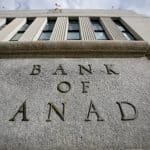Sales of existing homes in Canada are rebounding, with a number of major cities posting double-digit increases in the number of homes that changed hands in August compared to a year ago.

The Toronto area saw a 21-per-cent rise in sales over the Multiple Listing Service last month. Vancouver’s local real estate board reported a 52.5 per cent year-over-year jump in sales, and Calgary posted a 27.5-per-cent increase. Bank of Montreal economist Sal Guatieri notes that Victoria’s home sales came in 20.7 per cent higher than a year earlier, and Edmonton’s 9.9 per cent.
The numbers suggest that the housing market is strengthening in the wake of a protracted slump.
All told, “Canadian existing home sales could climb around 10 per cent year-over-year with average prices rising about 7 per cent year-over-year (pulled up by the sharp sales rebound in pricey Vancouver),” Mr. Guatieri wrote in a research note.
“After last year’s plunge in response to tighter mortgage rules, home sales have stabilized near normal levels and prices are rising moderately in most regions – a near perfect soft landing with shades of taking flight again,” he wrote.
It was in July of 2012 that Finance Minister Jim Flaherty tightened the mortgage insurance rules, including cutting the maximum amortization of an insured mortgage to 25 years from 30, which led to a steep slump in sales. Sales were lower at this time last year as a result, and that’s helping to make the current year-over-year gains look larger.
“August last year was a low point, so the year-over-year comparisons look larger,” said Royal Bank of Canada economist Robert Hogue. He’s waiting for numbers that the Canadian Real Estate Association will report later this month to see how sales are doing on a month-to-month after being adjusted for seasonal trends.
But economists agree that the data is pointing to a market that is rebounding from a lengthy slide.
Canadian Imperial Bank of Commerce economist Benjamin Tal said he had been expecting strong August numbers, not only because sales were weak in August 2012, but also because he says home buyers have been rushing into the market to beat mortgage-rate increases.
“But, even without those factors, my sense is that activity is too strong for the liking of policy makers,” Mr. Tal says.
Even sales of existing condos in Toronto’s downtown core, one of the markets in the country that economists and policy makers have been most concerned about, rose 21.4 per cent in August compared to a year earlier. Those condos changed hands over the Multiple Listing Service in the face of a large number of newly constructed residential towers that are coming on stream. And their average selling price on the MLS was $357,572, 2.3 per cent higher than a year ago.
The average selling price for all types of homes in the Toronto area was $503,094, up almost 5.5 per cent from a year ago. The MLS Home Price Index, which seeks to account for any changes in the mix of homes that are selling, was up by 3.7 per cent.
Canada’s banking regulator, the Office of the Superintendent of Financial Institutions, is in the midst of a lengthy review of the mortgage market, and is considering tightening the rules for lenders.
The Globe and Mail
Published Thursday, Sep. 05 2013












